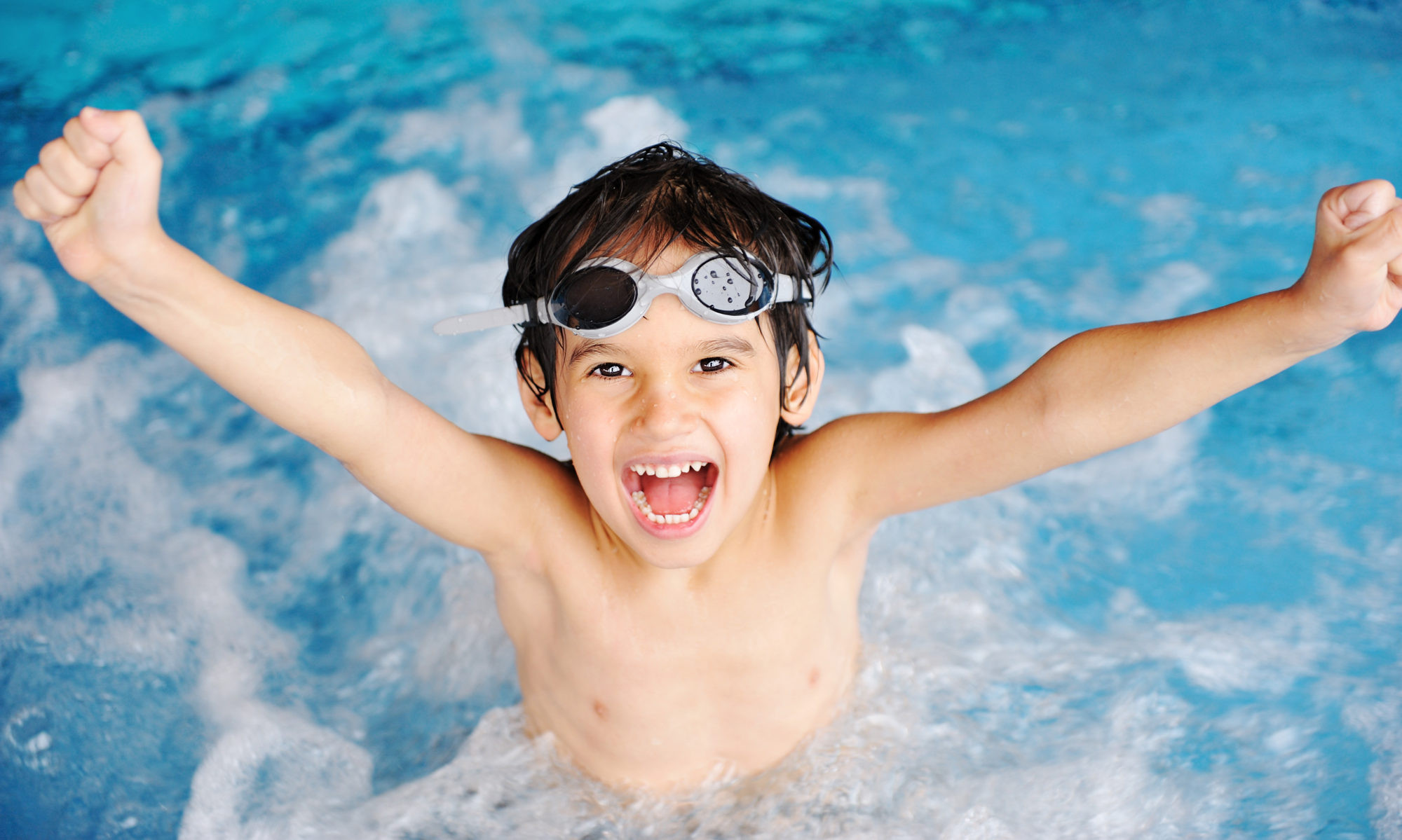Kids in elementary school are fully equipped physically and mentally to learn to swim. How can you make the most of their developmental readiness at every stage when you’re teaching them to swim?
Six years old
At six, kids’ fine and gross motor skills are well developed. They’re good at skipping, throwing, and maybe catching. At this stage, you’ll start to see swimming that resembles somewhat coordinated strokes.
Other kids their age become an important part of their lives at this stage. If you can schedule play time with other kids in the water, you’ll help motivate your kids to learn to swim. Keep lessons as distraction-free as possible, though. Try to schedule swimming lessons when there aren’t friends around.
Seven and eight years old
- Kids this age are often very curious.
- They’ve become good communicators.
- They have a strong sense of fair play.
- They can learn rules.
- They do well with developing and practicing skills.
- They’re learning to cope with frustration.
- They’ll also be likely to be afraid of the water if they haven’t had experience with it before. They’ll need a lot of time and a gradual approach to get past this fear.
It’s always important to be honest and keep your promises when you’re teaching kids to swim. Kids this age are especially slow to forgive a broken commitment. If you say you’ll let them choose the game at the end of the lesson, follow through, even if it means cutting instruction time short.
9 years old and up
Kids this age are usually very coordinated and good at listening and evaluating. Their minds and bodies are primed for learning physical skills. Just make sure to keep it fun when you’re teaching them to swim, and you’ll do fine.
At this stage, kids can handle longer swimming lessons, but they’ll still get tired and cold much faster than adults. Keep lesson lengths reasonable for your kids. Be sure to watch them carefully for signs of discomfort or fatigue. Kids this age can get so wrapped up in activities that they don’t realize they’re overtired until it’s too late.
